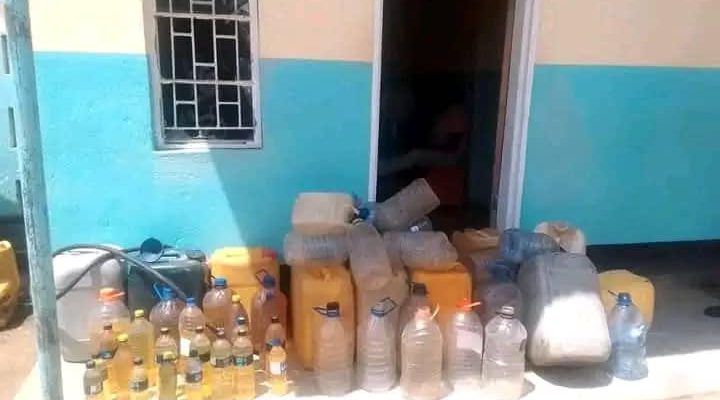
In a bid to address the ongoing fuel crisis in Malawi, police in Salima have intensified operations to crack down on illegal fuel vendors. The goal, according to law enforcement, is to stabilize fuel prices and ensure fair distribution of this critical resource.
Salima Police spokesperson Rebecca Ndiwate confirmed that the operation is actively targeting fuel vendors operating outside the law. So far, 65 litres of fuel have been confiscated. While no arrests have been made yet, the operation is expected to continue until the situation normalizes.
“The aim is to discourage the illegal fuel trade, which is contributing to shortages and pushing up prices,” Ndiwate said.
The fuel shortage in Malawi has become a national concern. Long queues at filling stations and escalating black-market prices have left ordinary citizens frustrated. Vendors are taking advantage of the situation by hoarding fuel and reselling it at exorbitant prices, exacerbating the problem.
The government’s intervention, through police-led operations, is intended to curb this illegal trade and ensure that fuel is available at official distribution points for everyone.
However, this raises an important question: What happens to the confiscated fuel?
In cases involving illegal items like cannabis, the standard practice is to destroy the confiscated goods by burning them. But fuel, being a valuable and scarce commodity, cannot simply be discarded. While the police have not disclosed the exact procedure for handling confiscated fuel, it is assumed that the seized fuel is stored securely and may eventually be redistributed or disposed of in a controlled manner. Transparency on this matter would go a long way in reassuring the public about the integrity of these operations.
The crackdown has sparked mixed reactions. Many citizens support the operation, believing it will discourage illegal practices and help stabilize the market. However, others remain sceptical, questioning whether the confiscated fuel is truly used for public benefit or if it disappears into the hands of corrupt individuals.
“I support the idea of stopping illegal fuel sales, but we need to know where the fuel goes. Transparency is key,” said a Salima resident.
As the fuel crisis continues, it is clear that a multi-pronged approach is needed. In addition to cracking down on illegal vendors, the government must address the root causes of the shortage, such as forex challenges and inefficiencies in fuel importation.
For now, operations like the one in Salima are a step toward restoring order in the fuel market. However, to maintain public trust, authorities must ensure that these efforts are transparent and yield tangible benefits for ordinary Malawians.
As citizens continue to ask, “Where does the confiscated fuel go?” the answer lies in the government’s ability to show accountability and use these resources to ease the current crisis.














